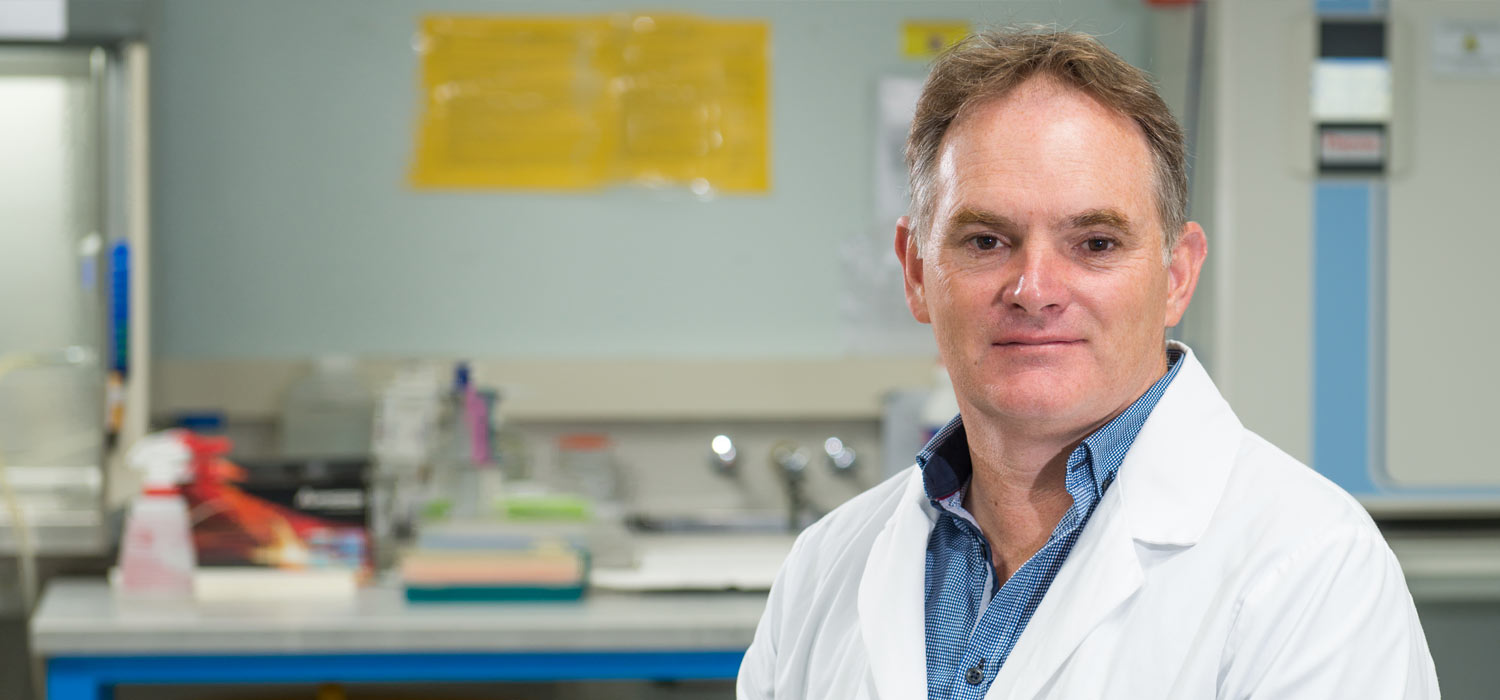
Hydrogen peroxide mystery
With every breath we take, cells in our body make small amounts of hydrogen peroxide. In some conditions, such as Alzheimer's disease, too much hydrogen peroxide is made, causing widespread disruption to cells.
It is very difficult to prevent this type of damage, however Professor Mark Hampton and his team from the University of Otago, Christchurch, are trying a new strategy to address this problem in a three-year project, “Investigating the Role of Peroxiredoxin Redox Relays in Cell Signalling”, supported by the Marsden Fund.
Hampton says the best way to develop new therapies is to unravel the fundamentals of what is going on inside our cells.
"Hydrogen peroxide triggers many different responses in cells, but we think it does so via a relatively small number of sensor proteins,” he says.
“Understanding how these sensor proteins relay information to other proteins – and designing ways of disrupting that information flow – might provide a novel way of protecting our cells from excess hydrogen peroxide.”
Diseases that could potentially benefit from these novel therapeutics include neurological disorders such as Alzheimer's disease, in which hydrogen peroxide is made by abnormal proteins; and heart attacks and stroke, in which hydrogen peroxide production is increased after blood flow returns.
Immune cells can cause damage by making too much hydrogen peroxide in inflammatory conditions, and some tumours also appear to have disturbances in hydrogen peroxide metabolism.
